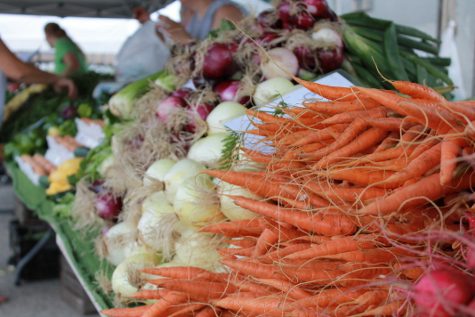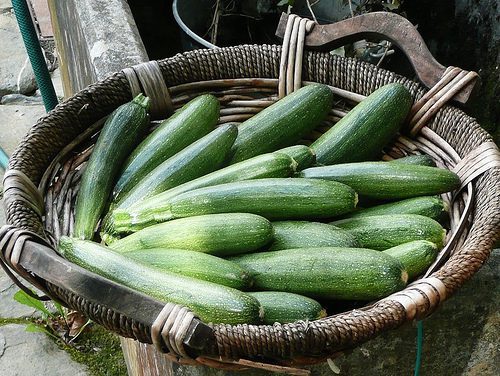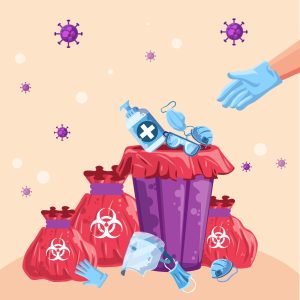The following post is from Katie of Kitchen Stewardship: Do You Eat Genetically Modified Foods?
People criticize me a lot for my casual stance on genetically modified foods.
Don’t get me wrong, I hate the idea of humans messing with the genes of any other living thing, and I think it’s totally wrong from a “gut feeling” perspective…But I don’t have an active “No-GMO” policy in our household, and that drives some people up the wall.
We actively avoid some GM food. For example, I do prioritize organic corn tortilla chips and corn for cornmeal. That’s an easy step for our family since we don’t have any soy, canola, or much beet sugar in the house. There aren’t a lot of other GMOs to worry about until we go out to eat or have someone else’s junk food.
And at that point, GMOs are the least of my worries.
What’s Really Genetically Modified?
I try to be informed about what I am and am not informed about. A lot of people at Farmer’s Markets are asking the question, “Are these GMO?”
I hate to judge, and I’m honestly so happy that genetic modification is finally becoming a known term in our culture (and has some bad press to boot). Still, sometimes I think they are just using a buzzword they barely understand.
If someone knew much about genetic modification at all beyond, “I hear that ‘GMOs’ are bad!” they would have seen the list of genetically modified food currently produced in America:
- Alfalfa (first planting 2011)
- Canola (approx. 90% of U.S. crop)
- Corn (approx. 88% of U.S. crops in 2011)
- Sweet corn was added in 2012, unfortunately
- Cotton (approx. 90% of U.S. crops in 2011)
- Papaya (most of the Hawaiian crop; approximately 988 acres)
- Soy (approx. 94% of U.S. crops in 2011)
- Sugar Beets (approx. 95% of U.S. crops in 2010)
- Zucchini and Yellow Summer Squash (approx. 25,000 acres)
- source: Non-GMO Project (There are a dozen or so other foods on the “watch list” because of possible cross-contamination with GM crops, plus be aware that animal products like meat, milk, eggs and honey are impacted by GMOs because of what the animals eat. More here.)
It’s not as many as I expected when I finally started educating myself.
I tried to explain that to a fellow shopper at the market a few weeks back when he asked a young salesgirl – who was clearly not the farmer – if they used GMOs.
She answered in the negative, and I chimed in by saying that only corn, zucchini, and summer squash are GM that you’d want to watch for, and none of them were even in season yet.
He seemed unimpressed and a little annoyed with me for butting in, but the gal selling the produce was happy to understand a bit more and thanked me for the info.
Not Asking the Questions

I’ve gotten a little lax at the market myself this summer.
You see, I don’t avoid all pesticides, either. My food is not 100% organic, and although more and more is becoming that way, I just don’t freak out if I have to buy conventional produce, as long as it’s fresh real food, and especially if it’s locally grown.
I’ve just gotten tired of asking the questions, and although my spirits are heavier when I buy zucchini nowadays, I just don’t have the heart to ask the GM question. I guess I don’t want to know because you gotta eat something. For me, for now, GMOs are my “one more thing.”
I won’t ever touch a genetically modified animal, and it freaks me out to the core that GM salmon seem to be an imminent possibility.
I’m ticked off that manufacturers don’t have to disclose when they use genetically modified ingredients because it sure would make it easier to at least be informed about what I was eating.
But overall, I can’t institute a strict “no-GMO” policy right now in our home. That would mean no eating out, ever, probably ditching all our corn chips (since GM corn is taking over everything else anyway, another reason it freaks me out), and throwing out all the candy gifts that loving grandparents give my children (which, I know, should be tossed anyway, but my husband doesn’t believe in being 100% anti-anything. We live an 80/20 lifestyle, and if junk food isn’t in the “20%” compromise, then what is there?).
GMO Education
I’m not saying that I’m totally educated about GMOs, and I realize that plenty of people with more knowledge than me might think that I’m barely a step beyond “using a buzz word that I don’t understand.”
But there’s a reason I don’t understand it all fully.
Every time I start to look into the subject of genetic modification, I get bogged down in contradiction:
- These 450 published assessments that GMOs are plenty safe vs. this 123-page myth-busting PDF
- This guy who led the fight against GMOs and then did a 180 and changed sides completely vs. Mercola, who cites many references saying the opposite.
- Do GM crops cross-contaminate other crops such that 100% of the world’s supply of something like corn may one day be genetically modified, whether we like it or not?
- Are GM crops impacting the bee population?
- Is it really true that GM corn has reduced the number of poisonous chemicals sprayed on plants (a positive note for the effectiveness of GMOs) or has Roundup use actually increased 7% since “Roundup Ready” corn was introduced?
- Are allergies to genetically modified vegetables possible, or not?
- Corporations who produce GM seed say that the genes can’t possibly impact humans because they will be broken down completely or killed in our digestive tracts…but then why are bt toxins being found in well over 50% of women’s blood and almost 100% of unborn babies tested?
It seemed that at least labeling laws should be no-brainers. There’s a new one going on the ballot in Washington state this fall, for example, that would require:
- Genetically Engineered (GE) foods are to be labeled visibly on the front, stating that they’re genetically modified.
- Fish is included.
- Meat, dairy, and eggs (which eat GM corn) are not included.
Then I start reading the opposing viewpoint, including:
- 522 will hurt small businesses, either because of the paperwork to prove that they’re NOT GM if they don’t label or because of the stigma of the label that they won’t be able to recover from like the big companies will.
- Too many exemptions begin to nullify the labels
- Enforcement will be difficult and costly, on taxpayers’ dollars, and likely will be weak – further nullifying the labels
He’s basically saying that this proposition is the kind of bad legislation that I often gripe about, governmental policies enacted without considering the long-term, far-reaching secondary consequences.
Then again, that’s potentially exactly what genetically modified crops are embodying as well.
What’s safer: assuming something will not hurt people just because it hasn’t been proven to do so in a few decades or forging ahead into a brand new world based on the fact that we’ve already had 40 years of experimentation…sort?
What stance do you take on genetic modification in your food?
| Katie Kimball has been “green” since 5th grade when she read 50 Things Kids Can Do to Save the Earth. She remains slightly disappointed that she didn’t save the whole thing back then, but now that she has 3 kiddos counting on her, she hopefully keeps plugging away. Katie blogs at Kitchen Stewardship about real food and natural living and is the author of Healthy Snacks to Go and other eBooks, available for Kindle. | |




